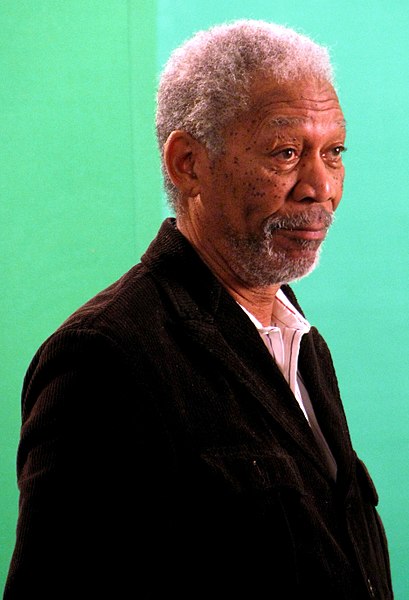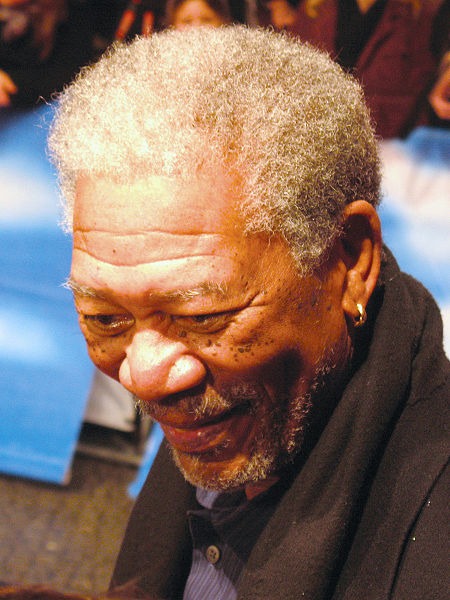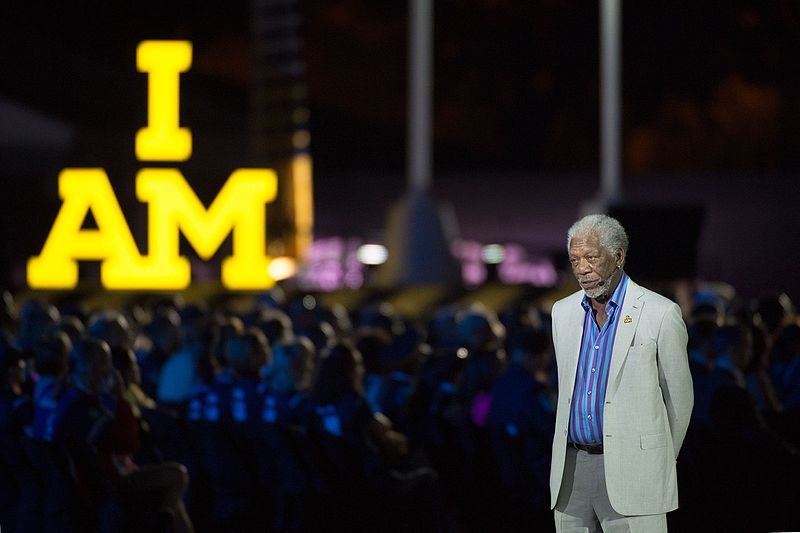Best known for his appearances in the movies “Driving Miss Daisy,” “Glory,” “Lean on Me,” “The Shawshank Redemption,” plus “The Dark Knight Trilogy,” Morgan Freeman is indeed one of the most respected actors of his time, displaying versatility, emotional depth, and fine-drawn humor in his performances on stage, TV, and the movie screen. Yet, being an actor wasn’t actually his dream, but a realization caused his shift to a career in which he undoubtedly shone. Here, let’s discover more about Morgan Freeman’s life, his start in acting, and his legacy in the movie industry.
Early Life
On the 1st of June in 1937 in Memphis, Tennessee, Morgan Freeman was born to Morgan Porterfield Freeman, Sr., and Mayme Edna Revere. His father was a barber, while his mother was a schoolteacher. Freeman was the youngest of his four siblings.
Undergoing the same plight of many African Americans due to the enactment of Jim Crow laws in the Southern United States, his parents moved to Chicago to find jobs, while Freeman stayed in Charleston, Mississippi with his maternal grandmother.
The death of his grandmother caused Freeman to return to his mother, who had already parted ways with his alcoholic father. They went back to Tennessee before eventually settling in Greenwood, Mississippi with his mother’s family.
His first venture into acting started in junior high school in a peculiar way. He had a crush on a girl named Barbara and one day, pulled a chair from under her to get her attention. His teacher marched him outside the room to the hall expecting to receive punishment, but only to be ordered to join a drama competition. To his astonishment and perhaps everyone else, he took the top honors and was chosen as the best actor.
The Dream
Though he showed potential, Freeman’s ultimate dream was actually to be a fighter pilot. After attending Los Angeles City College in 1955, he joined the U.S. Air Force. Though aptitude tests turned out he had the ability, Freeman was assigned to become a radar technician and mechanic, rather than flying into the skies. After thorough contemplation, he realized he wasn’t in love with being part of the military and bolted out of it in 1959.
Shifting Back
Still, it wasn’t an easy life as he struggled in the early 1960s, juggling acting classes, joining auditions, and doing petty day jobs. His debut in Broadway only came in 1967 when he joined the all-African American production of “Hello Dolly!”
In the 1970s, Freeman started getting national exposure when he became part of the public TV-produced children’s show “The Electric Company,” playing iconic characters, such as “Easy Reader,” “Count Dracula,” and “Mel Mounds.” He then appeared in the American drama film “Who Says I Can’t Ride a Rainbow!” starring Jack Klugman, followed by “Blade” (1973). He then played Casca, the antagonist, in “Julius Caesar” (1979), before playing the title role in the tragedy “Coriolanus” in the same year.
At the start of the 1980s, the talented Freeman made challenging film roles, being a crazed inmate in “Brubaker” (1980), as Lt. Black in “Eyewitness” (1981), and as Malcolm X, the African-American human rights activist, in “Death of a Prophet” (1981). However, work on the movies didn’t become steady despite his decent performance. Thus, he was forced to go back to TV to join the series “Another World” from 1982 to 1984.
The Big Break
Things went big for Freeman when he was cast as a dangerous, merciless hustler in the dramatic crime thriller “Street Smart” in 1987. Though the film didn’t fare well at the box office, it earned him his first Oscars nomination for Best Supporting Actor. Two years later, he reprised the role of Hoke in the film adaptation of “Driving Miss Daisy” giving him his second Oscars nomination, while winning it as the Best Actor in the Golden Globe Awards. In the same year, he became part of the “Lean on Me,” and the critically-acclaimed Civil War drama “Glory” directed by Edward Zwick.
Continuing Success
By the early 1990s, Freeman’s success was unprecedented, making appearances in films like “The Bonfire of the Vanities, ” “Robin Hood: Prince of Thieves,” “The Power of One,” and “Unforgiven.” In 1993, he made his directorial debut on the American drama film “Bopha!” starring Danny Glover. It was a box office bomb, earning only nearly $213,000 from a total production of cost of $12 million. Despite such, the film received positive reviews from the audience and critics.
Other films he made include “Se7en” (1995), “Chain Reaction” (1996) with Keanu Reeves, and “Kiss the Girls” (1997). Yet, his most notable ones for the decade were the flicks “The Shawshank Redemption” (1994) and “Deep Impact” (1998).
The 2000s
The 2000s were incredibly huge for Freeman. With this commanding aura and booming voice, he was the perfect actor to play God in the hit comedy film “Bruce Almighty” (2003) and its sequel “Evan Almighty” (2003) both starring Jim Carrey. In 2005, he won an Oscar for Best Supporting Actor for the American sports drama “Million Dollar Baby” (2004) directed by Clint Eastwood.
The 2010s
No one will forget his role as Lucious Fox in the blockbuster The Dark Knight Trilogy: “Batman Begins” (2005), “The Dark Knight” (2008), and “The Dark Knight Rises” (2012). Other movies he made in the decade include the successful “The Bucket List” (2007), another box-office hit “Wanted” (2008), “Invictus” (2009), and co-starred with Bruce Willis in “Red” (2010).
In the 2010s, Freeman’s acting prowess still shone as he continued to appear in more films. In 2013, he made “Olympus Has Fallen,” “Now You See Me,” “Oblivion,” and “Last Vegas,” two thrillers, a sci-film, and a comedy, also proving his versatility. The following year, he joined “Lucy,” and made “London Has Fallen” and “Now You See Me 2” in 2016. His later films include “Going in Style” (2017), “Just Getting Started” (2017), and “Angel Has Fallen” (2019).
Legacy
Citing his remarkable contributions to the entertainment industry, he was awarded Kennedy Center Honor in 2008, Cecil B. DeMille Award (lifetime achievement award from the Golden Globe) in 2012, and National Medal of Arts in 2016. While Freeman didn’t become the pilot that he dreamed to be, he surely reached greater heights as an actor, showcasing his skills, bringing to his characters, moving audiences with his performances, and influencing all those who have watched his movies.



